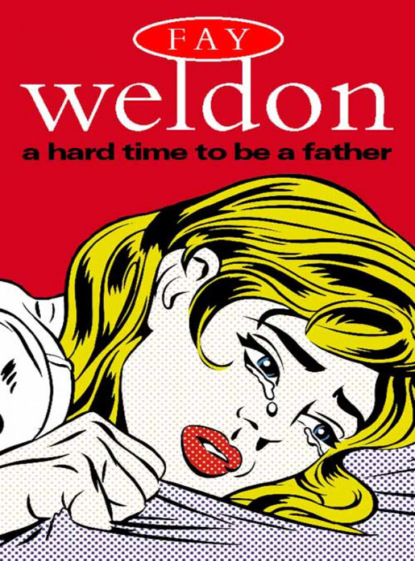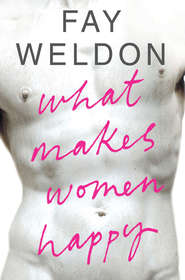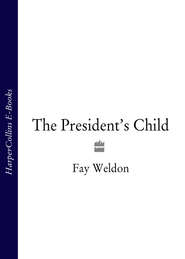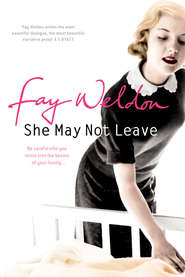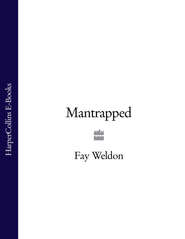По всем вопросам обращайтесь на: info@litportal.ru
(©) 2003-2024.
✖
A Hard Time to Be a Father
Автор
Год написания книги
2018
Настройки чтения
Размер шрифта
Высота строк
Поля
So we all went out to the wood, to play with gypsies.
OUT OF THE PAST (#ulink_2bcf380e-1478-5e89-88e9-7380df00ba8a)
The Ghost of Potlatch Past (#ulink_aafcc881-dde9-5221-a3d0-152f0eec7845)
Miss Jacobs, retired psychoanalyst, heard a scrabbling at her door at five o’clock one Christmas Eve and found a young woman folded on her doorstep, weeping. All around, fallen from her hands, were carrier bags from department stores, out of which tumbled glittery gift-wrapped packages of all shapes and sizes, many of them awkward. Miss Jacobs, although she had never seen the girl before, asked her in, and moved her many possessions inside the door, out of the rain. The girl was in her early twenties, clean, well-dressed in the contemporary fashion, and pretty enough. She had a ring through each nostril and twelve in one ear. Miss Jacobs, fascinated, counted them while the girl, who said her name was Clarissa, drank the tea Miss Jacobs offered. She drank it black, without sugar. Milk, Clarissa said, was known to contain organophosphates and possibly wrongly-folded prions, the source of BSE, and sugar was empty calories. Clarissa stretched her white damp disfigured fingers – string from the heavy carrier bags had bitten into them – and advised Miss Jacobs never to eat dairy products if she valued her health and sanity. She sat across the table from Miss Jacobs and sipped the unkind liquid and spoke.
‘I was going to knock on your door like a proper person,’ said Clarissa, ‘but when I came to it I couldn’t. I didn’t have the strength to knock and didn’t have the strength to leave, so I stayed where I was and cried, and rescue came. I was surprised. Rescue so seldom comes.’
‘But why my doorstep?’ asked Miss Jacobs.
‘My mother was once a patient of yours,’ replied Clarissa.
‘She would point out your door while we passed, usually by taxi, and would tell me how much you had helped her.’
‘I am happy to hear that,’ said Miss Jacobs. ‘What is your mother’s name?’
‘Juliet Penrose,’ said Clarissa.
‘I have seen many patients in the course of my working life,’ said Miss Jacobs. ‘I’m sorry. I don’t instantly recall the name.’
‘I expect it happens much as it does in a family,’ said Clarissa. ‘A child has only one mother, and is conscious of her all the time, but a mother can have many children, and is conscious of each only a little of the time.’
‘Quite so,’ said Miss Jacobs, relieved. ‘But tell me, why are you quite so exhausted? Is it the season or is the problem more than this?’ Though indeed Miss Jacobs was fairly tired herself. Not even being Jewish can save you from Christmas and there was Hanukkah just dealt with.
‘So long as you don’t charge me for my telling you,’ said Clarissa, fine eyes flashing.
‘Of course I won’t,’ said Miss Jacobs. ‘I am retired now and my pension is quite adequate.’
‘Potlatch,’ said Clarissa, ‘Potlatch has exhausted me. Four o’clock on Christmas Eve and the shops slam shut their doors, and turn off their lights, and the frenzy of shopping must stop, like the frenzy of killing when the blue UN helmets appear –’
‘If only it were so,’ murmured Miss Jacobs, but Clarissa did not hear, so bent upon her theme was she.
‘– and a forlorn peace descends upon the land, and the streets empty, and the taxis vanish. I walked all the way here.’
‘Poor you,’ said Miss Jacobs.
‘But if you watch the darkened shop windows you can see dim figures the other side of the glass, bending, stretching, reaching, putting up the New Year sale notices, bargain screamers, prices slashed. The battle is over but the dogs of war sleep for only minutes, already they are stirring, whimpering for a fresh attack. Warfare by way of gifts. Slaughter by generosity. Potlatch.’
‘I don’t quite understand what you mean by potlatch,’ said Miss Jacobs.
‘Perhaps just half a teaspoonful of sugar in my tea after all,’ said Clarissa, ‘and just a drop of milk. I do feel a little faint. With any luck there won’t be a faulty prion in the particular drop you give me. Do you understand about prions? Minute particles of protein; they normally fold in a rather pretty, attractive corkscrew whirl, but this way of folding leaves them vulnerable: heat can destroy them, or radiation or mould, or the simple entropy which affects us all. But now another prion has arisen, a rogue prion, which cares nothing for charm, but puts self-interest and survival first: it has flattened out its whirls to present a straight, sharp, flat, almost fascist surface to the world, which nothing so far known can destroy. And every gentle, old-fashioned prion this immortal, indestructible being encounters, gets the message at once, and flattens its own shape. It is not infected: it simply imitates, copies, in the interests of its own survival. The growth of the flat prion is exponential. The news spreads like wildfire in the prion world: merely flatten and survive! If a flat prion, and there are more and more and more in existence, encounters a brain cell in man or beast, it locks, apt surface to apt surface, and stays and lies in wait for newcomers, and then holes begin to appear in the brain – spongiform encephalitis – and all reason evaporates –’
‘We were talking about potlatch, not prions,’ said Miss Jacobs, ‘though I can see it is very frightening.’
‘They are linked,’ cried Clarissa, passionately. ‘Don’t you see? Potlatch is the extravagant ceremonial distribution of property by North Pacific Indians, in particular the Kwakiutl. Potlatches are given by chiefs by way of wreaking vengeance on an enemy. The one who gives least is humiliated and shamed. “Take this war canoe, my friend; finely painted and beautifully carved: see how subtly-shaped the paddles!” “We much admire the gift, friend, but here we have a many-coloured tepee for you: six squaws lost their sight embroidering its fringes, and take as well this humble war canoe, with simple filigreed prow and paddles silver-tipped!” “Thank you, thank you! Now take these six virgins, reared specially for you, friend. See how plump and sleek they are!” “How thoughtful of you, and surprise, surprise, we have twelve virgins for you and all your tribe, and all our virgins can read and write, and see here, the heart of a slaughtered slave.” And so on, until the one outdone by the other, the poorest in generosity, creeps away disgraced. My mother practises potlatch. And I, like the prion who has discovered how to survive, now practise it too. I cannot help myself, but hate myself.
‘I was born on Christmas Day 1972, and the earth moved. Ten thousand people died in an earthquake in Nicaragua. I was the youngest child of six, an afterthought, born when my mother Juliet was forty-two. She only became pregnant with me, my mother once told her friends, and I overheard, to give herself an excuse to stop seeing you.’ ‘Really,’ remarked Miss Jacobs, puzzled, ‘can that be so?’
‘It’s what she told me,’ said Clarissa, ‘which makes you responsible for my life. I have always felt so, and never passed your door without a certain frisson. Anyway, my mother’s guilt was such, great sums of money were spent converting a box-room into a nursery on my account, the better to welcome me into the world. It would have been better sent to the victims of the earthquake. I could have shared with Severo, aged two at the time of my birth.’
‘Perhaps your mother just wanted to welcome you into the world,’ observed Miss Jacobs, ‘it may not necessarily have been guilt that motivated her.’
‘On my first birthday,’ said Clarissa, ignoring this, ‘the nation was in the middle of a three-day week; the power stations closed; TV programmes stopped at ten-thirty, and my mother bought me a teddy bear so big it could hardly get through the door. It sits at the end of my bed to this day. My father left home on Christmas Eve; he’d found a lover in my mother’s bed. The couple were both asleep and I had crawled in beside them. I don’t remember the scene; I have buried the memory, no doubt. But the teddy bear from my mother was guilt on her part, of course it was. Only spend, my mother thought, and all will be well. She should have given the money to the striking miners.’
‘Should, should,’ murmured Miss Jacobs.
‘Potlatch only happens when there is plenty,’ said Clarissa.
‘The North Pacific Indians lived in a pleasant, fertile land. Deer were plentiful, edible roots were at hand, and salmon ran up the rivers. My father made millions as a designer of contemporary furniture. And of course he felt guilty too, for his five abandoned daughters and one abandoned son. Tax never took enough away.’
‘That is quite a rare response to tax,’ said Miss Jacobs. ‘In fact in all my working life I have never heard anyone say such a thing.’
‘By Christmas 1974,’ said Clarissa, ‘inflation in Britain had reached 25 per cent. Teachers that year got a 32 per cent pay rise. And what was my mother’s response? Spend, spend, spend! The Sex Discrimination Act and the Equal Pay Act came into force three days after my birthday in 1975, and did my mother get a job? No, she just asked for more alimony. By my third birthday my leisure years were considered over, and while a Rhodesian terror gang killed twenty-seven of their own – how puny massacres were in those days – I was finger-painting Christmas cards for my four sisters, my one brother, my absent father, my new stepfather and his three sons. And after that, it was downhill all the way. My mother’s generosity and kindness increased my annual present list exponentially. Thanks to you she never quarrelled with husbands or lovers, she simply left or was left, and kept on good terms with everyone, even my father. Like wrongly-folded prions, those in need of gifts and friendship latch on, and I, like her, spend the Christmas season, when so many world disasters happen, wrapping presents and attaching baubles. Warfare by generosity. Potlatch: who gives, wins.
‘On my seventh birthday the Vietnam boat people took to the seas and my mother adopted a little Vietnamese boy. She always preferred sons. On my eighth, the Iranians rose against the Shah and welcomed the Ayatollah Khomeini (out of the kettle into the fire, some say) and I was given the most expensive bicycle Harrods could offer. For my ninth my mother was away in the States for John Lennon’s funeral; on my tenth my mother should have been at Greenham, but she wasn’t. My mother was not the kind to damage her nails linking hands with muddy women, not even to save the world.’
‘Perhaps this obsession with birthdays,’ remarked Miss Jacobs, ‘is because you feel deprived by fate. Children whose birthday is near or on Christmas Day often have to make do with one set of presents.’
‘You must have told my mother that,’ said Clarissa, ‘and she believed it. I always got at least five times as much as my many and varied siblings, and they know it, and dislike me for it, and the more they dislike me, the more I feel obliged to give them.
‘In December 1980 at least two thousand people were killed by Union Carbide at Bhopal, but nothing daunted my mother’s gift-wrapping fervour. Could we have bread and cheese for Christmas dinner, and do without on their account? No. In October 1987 a tree fell through a conservatory roof in the great gale so that Christmas we ate in the kitchen and the maid stayed home, but that was our own misfortune, not the world’s. In December 1988 an earthquake in Armenia wiped cities off the face of the earth and a hundred thousand died, but my family’s annual Christmas fund remained undented. On my birthday in 1991 Gorbachov resigned and the Soviet Empire came to an end, and our turkey was too big to go into the oven. In December 1993 the South African parliament voted itself out of existence and over the Christmas Day sherry, I heard my mother ask someone, “What is apartheid anyway? Is it a city?”
‘Do you know what I have in all those wet shopping bags? I have gifts for my sisters Saffron, Jubilant, Cleopatra and Severo, and my brother Aurelius, and my little adopted brother Min, and presents for my father Harry, and his later wives, Mandy and Debbie and Peacock, a transsexual, and my ex-stepfather Richard, and his boys Charles, David and Bill, and my new stepfather Gavron and his sister Cassandra, who’ll be upset if she’s left out – she is suicidal. And there are so many grandparents on all sides, not to mention aunts, uncles, cousins, I don’t know what to do, but those you forget don’t forgive. And Saffron and Jubilant are both pregnant and what worries me is that now the next generation is coming along and, as with the flat-folded non-destructible prion, growth of family members will be exponential and podatch frenzy never be at an end, and how will I ever find time or strength to save the world? I blame my mother. And the shops are shut and I have no gift for Saffron’s partner or Jubilant’s husband and I can’t even remember their names. I’m so tired.’ And Clarissa’s tears were renewed.
‘What we regret for the dead, the poor and distressed,’ said Miss Jacobs, ‘is that they are not alive, spending and happy. We might as well have a good time while we can, in their honour, if indignation will allow. There’s such a thing as going too far, I do agree, but all will yet be well.’
When Clarissa was calm again she and Miss Jacobs both put on raincoats, and went down the street to where there was a skip and emptied out the contents of the carrier bags – a myriad packages and parcels, gold and red and green, all glittery with Christmas goodwill – so they tumbled down into wet rubble and in between paint-peeled planks of worm-eaten wood. And if the minute Miss Jacobs and Clarissa were gone a host of shadowy figures stretched skinny arms out of the damp dark to retrieve them, so much the better.
Once in Love in Oslo (#ulink_d291b9ce-e58b-510e-81b7-8e81414ca6fa)
The woman drove. The man was the passenger. She was English. He was German. She was in her fifties, tough and bright and not yet finished with sex. She wore a vivid green shirt and jacket. His hand rested on her knee. He was thirtyish, blond, gentle-eyed; sharp, childish features clouded by a soft fuzzy beard. He thought she was invincible, wonderful, and often told her so.
Stella had things to do in Oslo, she said: a couple of people to see: a few loose ends to tie up. She’d appreciate company. Lothar was a children’s book illustrator; a couple of commissions had fallen through: he had time to spare. They’d met in a bar in his home-town, Berlin, and gone home together. She was in business, she said; he was not sure what it was. She lived in Ipswich, England.
She knew her way through the backstreets of Oslo; the ship had docked at 6 a.m.: early: they’d picked up the hire car at the port, a BMW, executive style, glossy black, bullet-proof windows. Lothar didn’t drive – he did not, he often said, wish to be an accomplice in the pollution of the planet; besides, he enjoyed his passenger status. He thought her hands gripped rather tightly on the wheel as they approached Grunnerloekka.
‘I hate this place,’ she said.
Early sun shone on snow-sprinkled trees. Lothar looked round for any possible source of her hate, but could find none. It was a district much like the one he himself lived in, only in Oslo, not Berlin. A run-down, attractive village-within-the-city, where artists and academics clustered, and now the immigrants moved in because rents were cheap. Already people were about. A bouncy blonde mother wheeled out twins in a high, well-sprung pram: a group of shrouded Islamic women hurried by; a pale young man with ringlets played folk-songs on a flute. A Turkish foodstore stood next to a shop selling Japanese paper lampshades and beeswax candles: there was an espresso bar next to a clinic offering Chinese medicine and acupuncture. A gang of children raced along the shop fronts, banging hands against shutters and doors as they went – clang, clang, reverberating – but otherwise they kept silent, as if like a flock of birds they could read each other’s minds. Vietnamese, he thought: lithe, graceful and dangerous; those, you could be sure, whom earlier generations had wronged, now thriving on the guilt of the descendants.
‘It seems much like anywhere else,’ said Lothar cautiously.
‘It’s going down in the world,’ she said. ‘Black faces everywhere.’
He felt shocked. He’d been on the verge of falling in love with her. He moved his hand away from her knee. She felt it go and smiled.
‘I am concerned for property prices, that’s all,’ she said.





